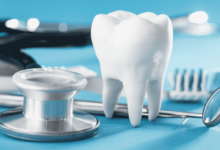Unlocking Wellness: The Benefits of Addiction Recovery Care in NJ

Addiction recovery care in NJ offers a wealth of advantages that support individuals on their journey to sobriety and improved well-being. With a strong emphasis on community involvement and comprehensive treatment options, those seeking recovery can find the necessary resources and support to facilitate lasting change. Here are some of the key benefits of addiction recovery care New Jersey.
Accessible and Diverse Treatment Options
One of the primary benefits of addiction recovery care in NJ is the wide array of treatment modalities available. Individuals can choose from outpatient programs, inpatient care, and specialized therapies tailored to their unique needs. This diversity allows individuals to select a path that resonates with their personal circumstances, making it easier to engage in the recovery process effectively.
Strong Support Networks
Addiction recovery care in NJ provides robust support systems that are essential for successful recovery. Individuals have access to a network of trained professionals, counselors, and peer support groups. These connections foster a sense of community and belonging, which can significantly enhance motivation and accountability throughout the recovery journey.
Holistic Healing Approaches
Many addiction recovery programs in New Jersey incorporate holistic practices that address the mind, body, and spirit. Activities such as yoga, mindfulness, and art therapy not only aid in emotional healing but also empower individuals with coping strategies that extend beyond their time in treatment. This holistic approach fosters a deeper connection to self and promotes overall wellness.
Family Involvement and Education
Understanding the role of family in the recovery process, many programs in NJ emphasize family involvement. Educational workshops and support sessions for family members equip them with the tools needed to support their loved ones effectively. This emphasis on family engagement fosters a nurturing environment that is crucial for sustained recovery.
Focus on Relapse Prevention and Aftercare
Addiction recovery care in NJ recognizes that the journey does not end after treatment. There is a strong emphasis on aftercare services, ensuring individuals have ongoing support as they transition back to daily life. Access to alumni networks, continued counseling, and sober living options helps prevent relapse and promotes long-term success.
Read also: HEALTHY MEAL PREP IDEAS FOR BUSY PROFESSIONALS
Customized Treatment Plans
Each individual’s path to recovery is unique, and addiction recovery care in NJ often emphasizes personalized treatment plans. Professionals work closely with clients to assess their specific needs and tailor interventions accordingly. This individualized approach enhances commitment to the recovery process and leads to more effective outcomes.
Integration of Mental Health Services
Many recovery programs in NJ also address co-occurring mental health issues, ensuring comprehensive care for individuals. By integrating mental health services into addiction treatment, individuals are better equipped to develop coping strategies and emotional resilience, which are essential for maintaining sobriety.
Community Engagement and Support
The local communities in New Jersey are actively engaged in supporting recovery initiatives. Numerous organizations and advocacy groups work to promote awareness and provide resources for those in need. This community involvement creates a positive environment where recovery is encouraged, making it easier for individuals to seek help and stay motivated.
Conclusion
Addiction recovery care in NJ offers a multitude of benefits that empower individuals to reclaim their lives and pursue healthier futures. With accessible treatment options, strong support networks, holistic healing approaches, and a focus on family involvement, those seeking recovery can find hope and renewal. By embracing these advantages, individuals can embark on a transformative journey toward lasting change and improved well-being.





